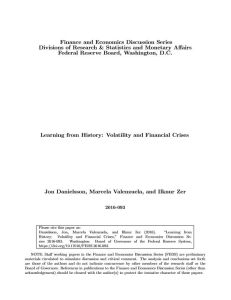Join getAbstract to access the summary!

Join getAbstract to access the summary!
Jon Danielsson, Marcela Valenzuela and Ilknur Zer
Learning from History
Volatility and Financial Crises
Federal Reserve Board, 2016
What's inside?
Patterns of volatility, not volatility per se, can portend financial crises.
Recommendation
In the years before the 2008 financial collapse, stock market volatility was unusually subdued. In this insightful, well-presented report, economists Jon Danielsson, Marcela Valenzuela and Ilknur Zer offer financial professionals and policy makers new research on market volatility and banking crises that is based on more than 200 years of data drawn from countries around the world. The authors’ findings support the counterintuitive idea that long-term stability foreshadows economic shockwaves. getAbstract recommends this authoritative report to investors and policy experts interested in understanding how volatility patterns foster systemic risk.
Summary
About the Authors
Jon Danielsson is a political economist at the London School of Economics, where Marcela Valenzuela is a PhD student in finance. Ilknur Zer is an economist at the Board of Governors of the Federal Reserve System.





















Comment on this summary